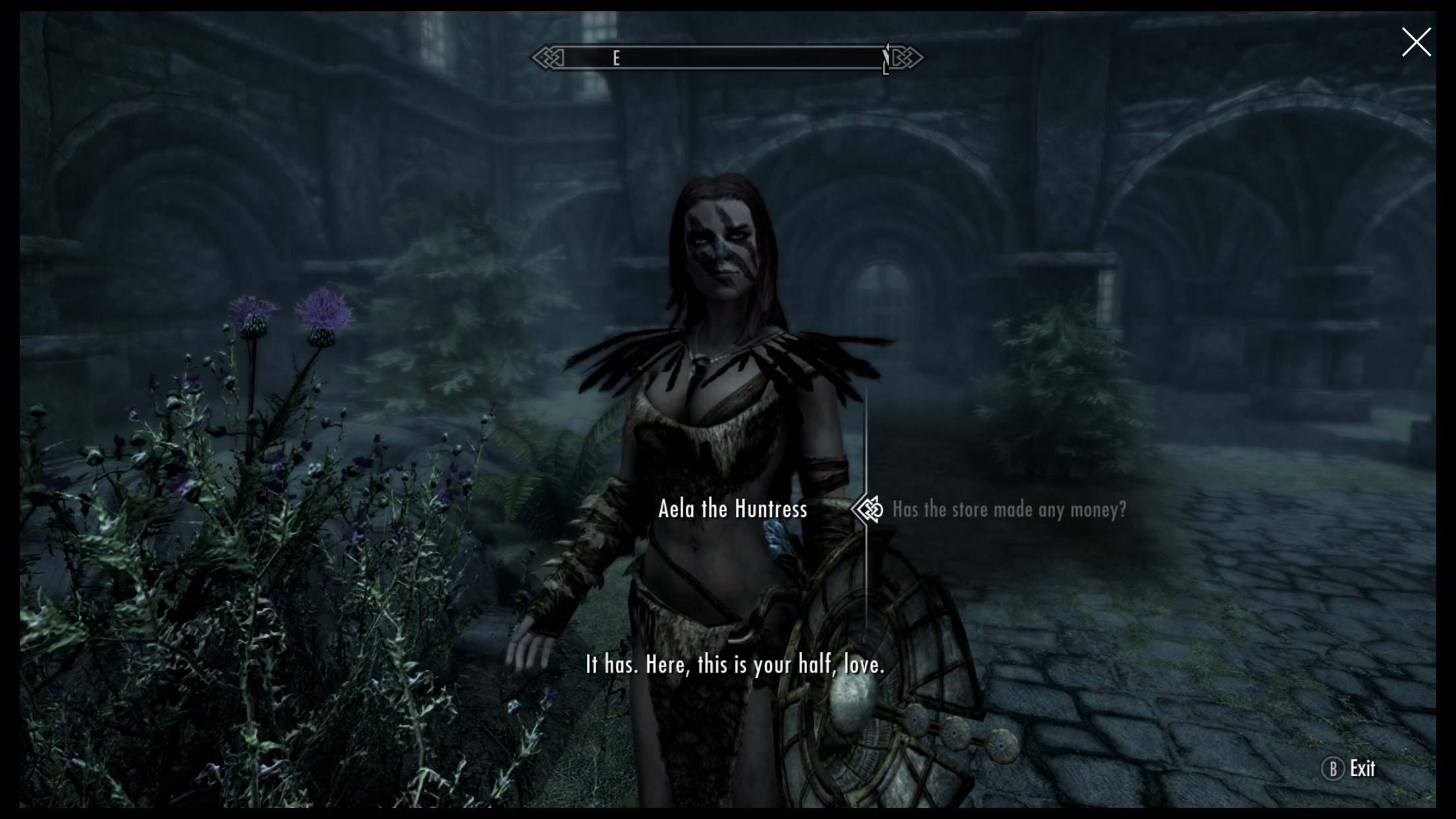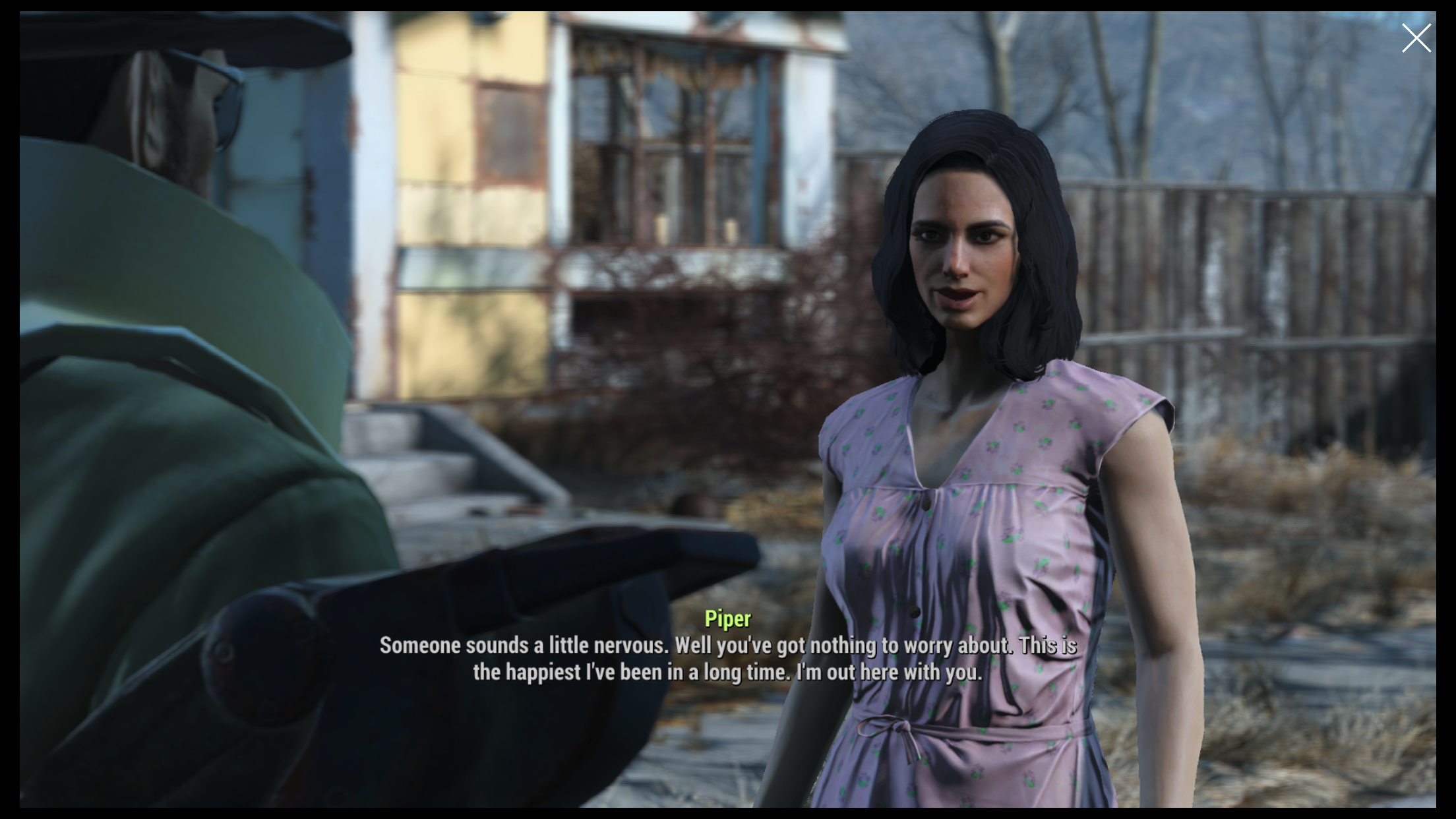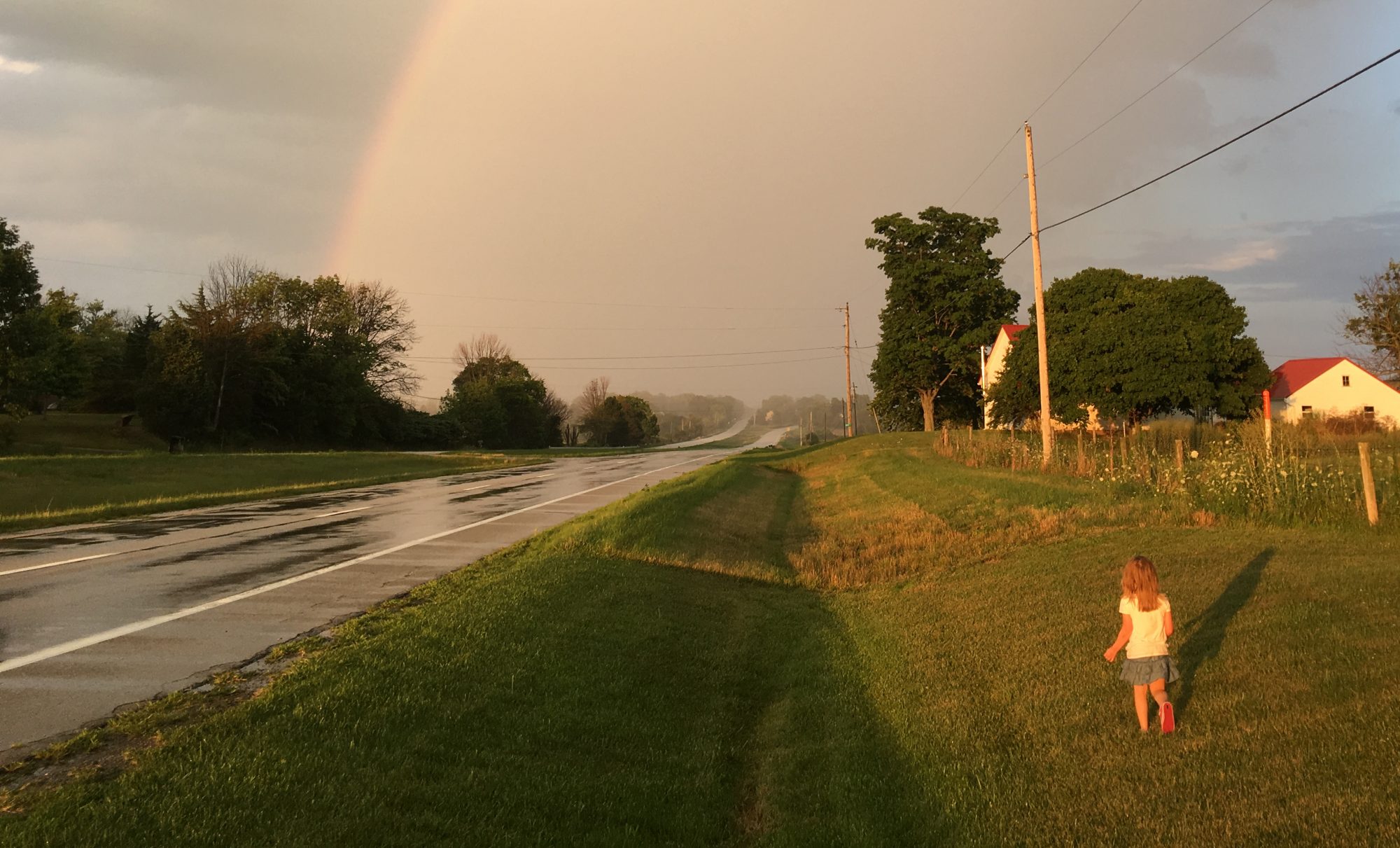There’s a human cost, in NPCs, when trying to simulate groups of interacting individuals. Too often are AIs reduced to two interactions: be hostile or don’t be hostile. Yes, that’s a ubiquitous human paradigm, but there’s one that’s even more common–humans forming relationships–which is rarely explored to any convincing degree. And so, the NPCs with which we share our virtual worlds never deviate from their proscribed emotional state…unless we need to kill them.
But all that’s beginning to change, and looking back on earlier games, I find my in-game actions to differ drastically based on the lack of meaningful NPC relationships. Is that an over-analysis of a recreational pastime? Yes, yes it is. But here we go.
Of the Bethesda games I’ve played, Skyrim was the first to introduce marriage, which then carried over (sort of) into Fallout 4. In the latter, you can technically form romantic relationships with a variety of characters, who will then dutifully follow you everywhere. While doing so, they’ll kill enemies, make snarky comments, judge you on morally ambiguous decisions, and…have sex with you every time you take a nap. This includes improvised bedrolls found in dingy subway maintenance rooms–wedged between the shelves of industrial solvent and derelict generators. There isn’t even an option to say no–it just happens automatically every time.
Skyrim was a little different, limiting sex to your home and rented hotel rooms. It also limited these entanglements to a single person–who must be your spouse. And no, you can only have one spouse at a time (in fact, I’m not even certain if there’s a divorce option). I guess these were more civilized times. And once married, a spouse will faithfully fight alongside the player character, giving greater meaning to in-game marriage beyond someone who simply shares your house.

Prior to Skyrim, Fallout 3 limited romance to a prostitute and some teenager who kind of had a thing for all the boys in town (your character included, upon visiting). Then again, Fallout 3 was about the bleakest game I’ve every played, and even when stumbling across remnants of what might have been a happy relationship between two NPCs, it generally only served as a plot device, as the outcome was always bad, to introduce more despair (e.g. the embracing skeletal remains of a couple on the couch–incinerated where they sat).

Of course, “sex” in these games is limited to triggering a sleep cycle, having the screen fade to black, then waking up with a temporary experience buff and an on-screen vague inference to having slept in proximity to your lover.
But before this, Oblivion hardly touched on the concept of romance at all. Some NPCs had spouses, but except for two instances I can think of offhand, the married characters only complained about said spouses. And you as the main character cannot find a girlfriend/spouse. Maybe Bethesda didn’t feel that would fit well into the game, and I know they were really trying to keep a teen rating on the game (ultimately unsuccessfully), so perhaps it was best to exclude sex and all innuendos completely.
The result is that I always feel like a bit of a Clint Eastwood character in Oblivion. I show up, do some generally good deeds–some questionable–then I ride out of a town to unknown parts. And for the most part, I’m always alone. There are some characters that will follow you, but there’s no personal connection to them, and I tend to just enjoy watching them take beatings again and again at the hands of wolves and bandits.
Such is the fate of heroes–after crises, they cease to serve a purpose. Fallout 3 recognized this by killing the main character. Skyrim and Fallout 4 gave meaning to the post-crisis character by giving them a family. But Oblivion offered no such purpose.
So my Oblivion character wanders eternally.
Were I to have no wife, would I wander eternally in search of purpose like my Oblivion character? In games with no endgame, the fate of heroes might uncannily parallel the player’s deeper sense of purpose. I even built a retirement home on the beach in Fallout 4, after completing the main campaign.
An identity crisis from video games. Who would have thought?
–Simon
